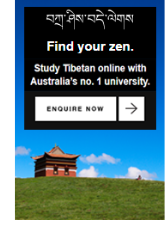Without urgent action on the movement of people, Indonesia is set to join the countries hardest hit by the COVID-19 pandemic, Febi Dwirahmadi writes.
The Indonesian government has established a national rapid response taskforce led by the head of the National Disaster Management Agency to oversee measures that attempt to control the spread of COVID-19.
To strengthen healthcare preparedness, the government also transformed the 1800-bed athlete villages from the Asian Games into hospitals and prepared 100 hospitals in various locations to treat the growing number of infected people. Physical distancing and other transmission-reduction measures have been imposed to slow the spread of the virus. But where is the response heading, and is it working?
Despite the response measures, Indonesia has a very high recorded death rate from COVID-19. Many speculate the apparent death rate from the virus is artificially high because of under-reporting of cases. Public health experts claim the contact-tracing strategy lacks transparency, that testing capacity is uncertain, and that to date the government has not released the number of tests performed. Further, the strategy has failed to provide clear direction to the public about potential contagion from confirmed cases.
Although government representatives have repeatedly delivered public health messages, many residents fail to observe physical distancing, which has produced pockets of community transmission within major cities. Further, inadequate access to proper personal protective equipment forces healthcare personnel to risk their lives – with some wearing only plastic raincoats when treating patients. Sadly, many have been infected and some have died.
But the worst is yet to come. When seasonal dengue fever hits, an influx of patients with dengue is expected, further burdening the already overstretched healthcare system. In addition, mudik, an annual homecoming tradition, is just around the corner with the approach of Ramadan, the holy fasting month. Without strict regulation of people movement, COVID-19 will wreak havoc in all Indonesian provinces.
The containment window is narrowing, and yet the Indonesian Government refuses to consider a country-wide lockdown in an effort to avoid economic collapse. In response, the parliament have accused the government of not treating the pandemic seriously enough to protect national security.
Societal scepticism about the government’s ability to prepare for a worst-case scenario is growing rapidly because the government has failed to build and maintain trust. Elaine Vaughan and Timothy Tinker suggest that the main components of building trust are leaders’ competence, fairness, honesty, caring, accountability, and transparency. They also argue that, when delivering public messages, a lack of trust can arise from the poor communication skills of the appointed spokesperson.
For example, the government’s recent statement about ‘the wealthy’ and ‘the poor’ was a blunder that triggered much criticism from the public. A spokesperson at an official press conference said “the wealthy take care of the poor so that the poor could have a decent life; and the poor take care of the wealthy so they don’t transmit their disease to the wealthy”.
In this time of crisis, choosing the appropriate words when making statements is crucial. Messengers should avoid statements that can be interpreted in different ways. Public messages should also be both culturally sensitive and persuasive.
T he Indonesian government must quickly increase its pandemic countermeasures and improve its risk-communication strategy. The government needs to collaborate with research institutions to improve epidemiological surveillance and infection tracing. It should also better understand the factors that affect acceptance of public health warnings.
he Indonesian government must quickly increase its pandemic countermeasures and improve its risk-communication strategy. The government needs to collaborate with research institutions to improve epidemiological surveillance and infection tracing. It should also better understand the factors that affect acceptance of public health warnings.
On top of this, the situation demands more restrictive physical distancing, travel restrictions, quarantine and case isolation, and law-enforcement must ensure containment measures are enforced. Monetary fines or jail sentences may be required to maintain discipline and promote compliance by community members.
As suggested by researchers, the government should apply a whole-of-society approach and strengthen not only healthcare capacity but also public health preparedness. The faster governments can work, the faster this crisis can end.





 Saving lives will save Indonesia’s economy
Saving lives will save Indonesia’s economy